So buying an RV comes to your mind now. Do you really know HOW TO BUY AN RV? Are you familiar with the things-to-consider thing?
To avoid blaming yourself at the end, consider making a comprehensive checklist to help you make the best purchase. Lack of knowledge can cause major problems so learn to understand the mechanics of buying RVs.
Here you will learn a few considerations when it comes to owning an RV. Check on them for you to become a happy RV driver while you hit the road.
#1: Know The Different Types of RVs.
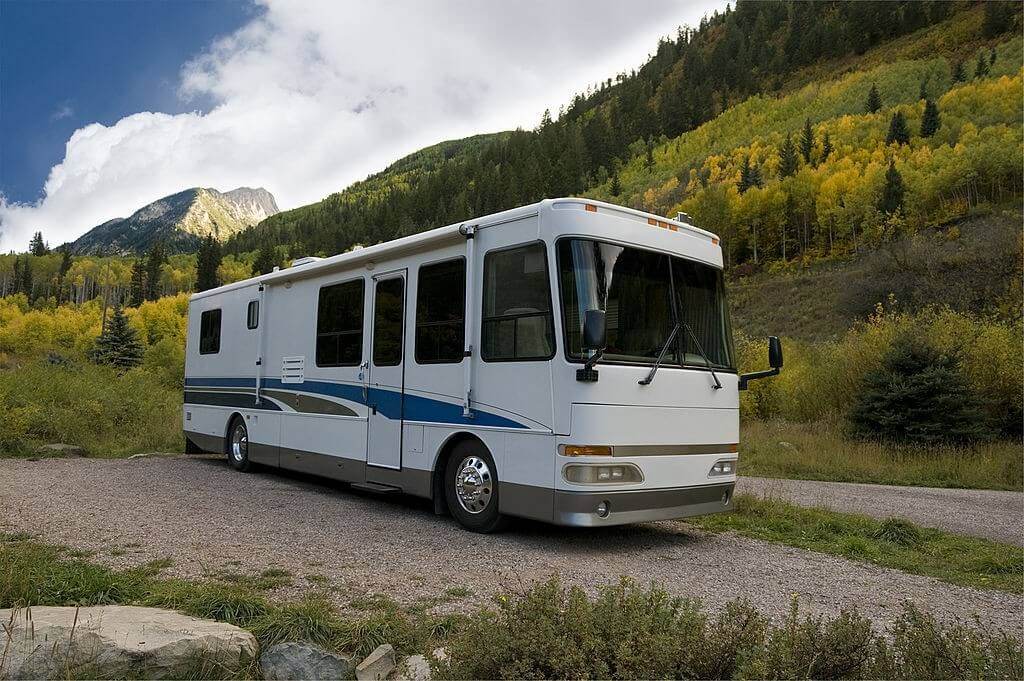
An RV comes in a diversity of types. Know the difference between them and you will know which motorhome you will best be holding.
Class A
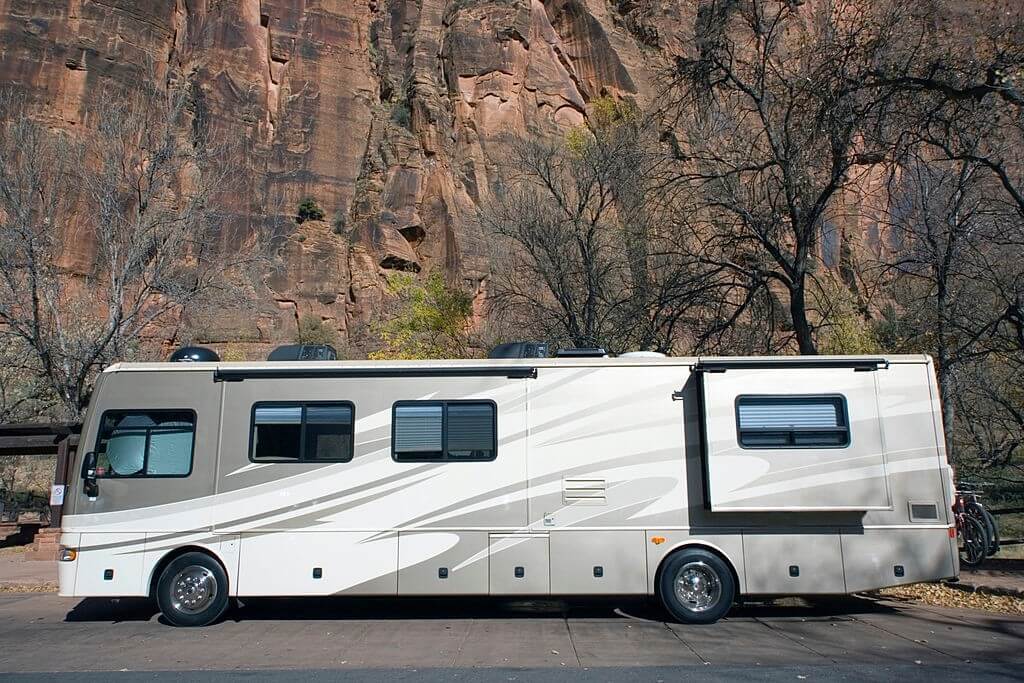
Class A is a gas motorhome and is a common choice for full-time RVers due to its residential-style appliances for real home comfort. Also, the vehicle has plenty of storage compartments used to store personal belongings.
Class B
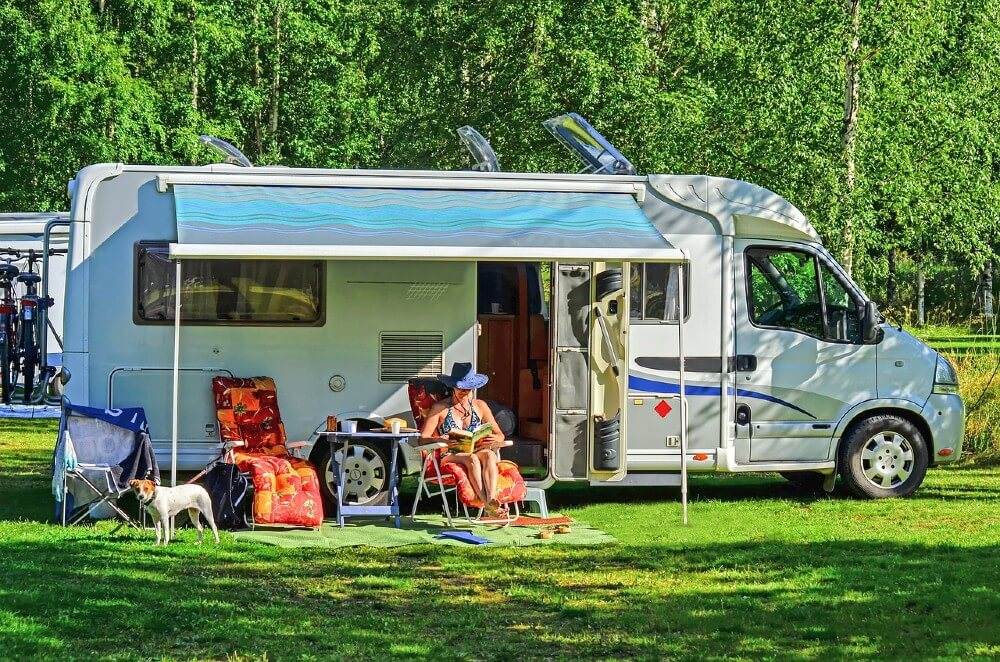
B-vans are great for adventurous RVers. They use gas or diesel engine and drive like a standard mobile. It is equipped with some of the pieces of equipment for exploring remote areas. This type is compact but offers clever features.
Class C
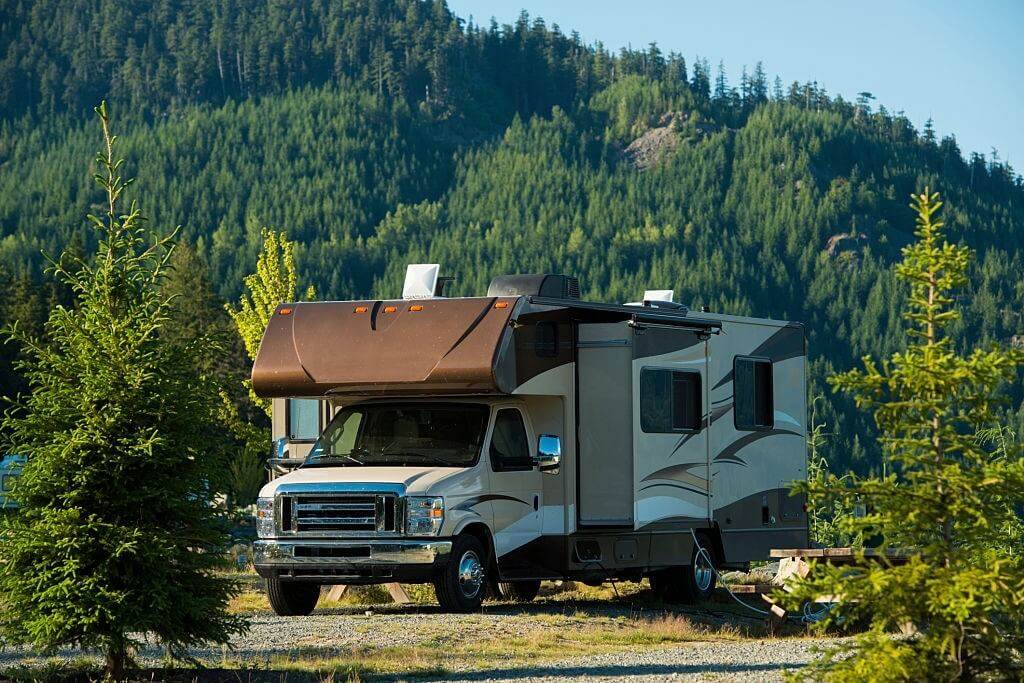
Class C RVs are the small type yet offer extra bed or storage space. It is perfect for remote exploring and camping. It is also best for users who travel with friends and families.
Toy Haulers
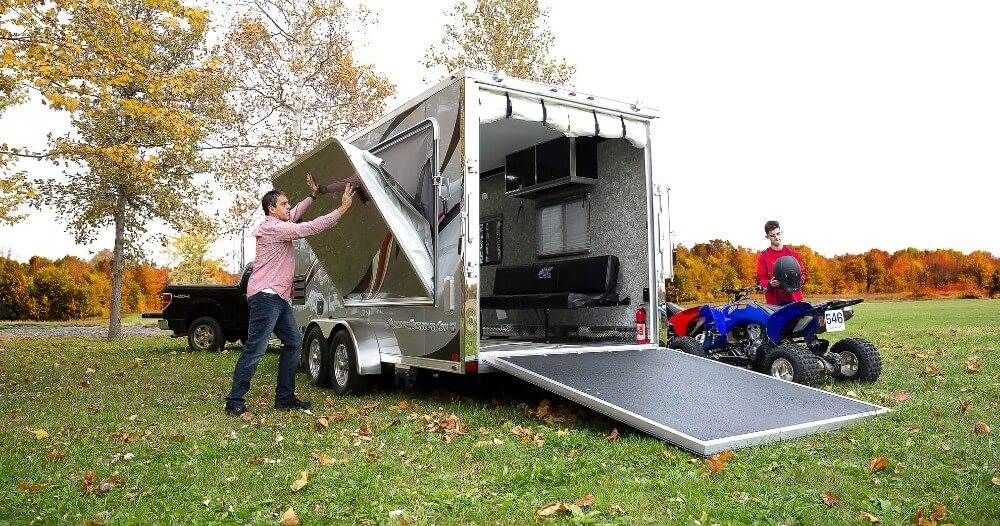
Toy haulers are designed with tons of gear and outdoor toys including dirt bikes, four-wheelers, kayaks, and motorcycles. What’s good about this type is that you can tow it with other trucks or cars.
Teardrop Campers/Tiny Trailers
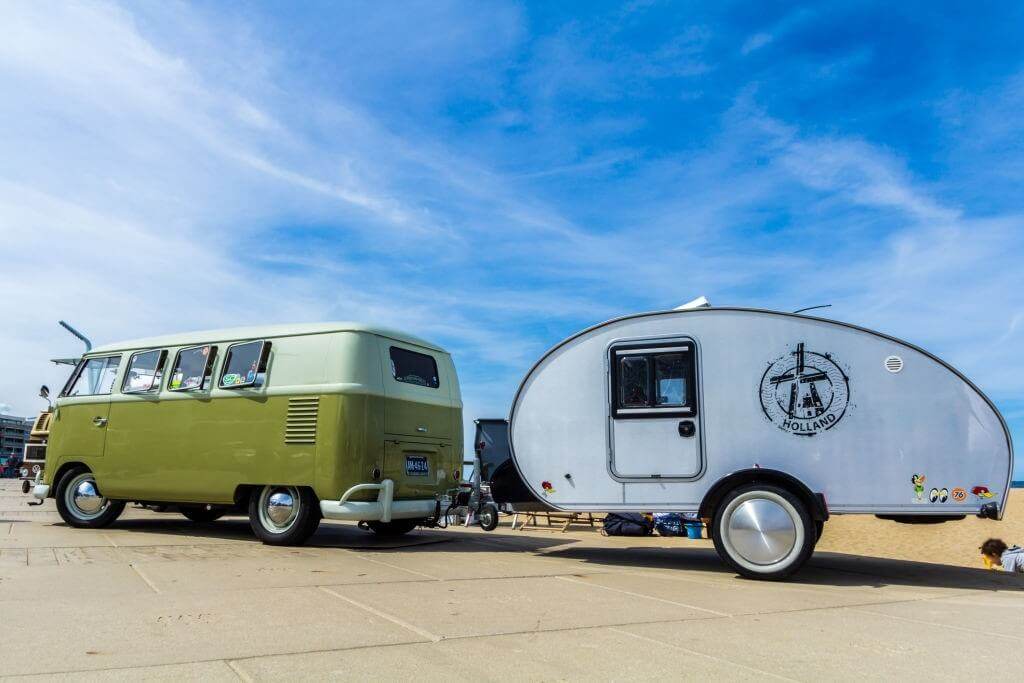
Another towable RV is the tiny trailer. It is in a teardrop shape and great for weekend travelers. There are larger floorplans provided and users can able to easily decorate the motorhome with retro fabrics and trimmings.
Travel Trailers
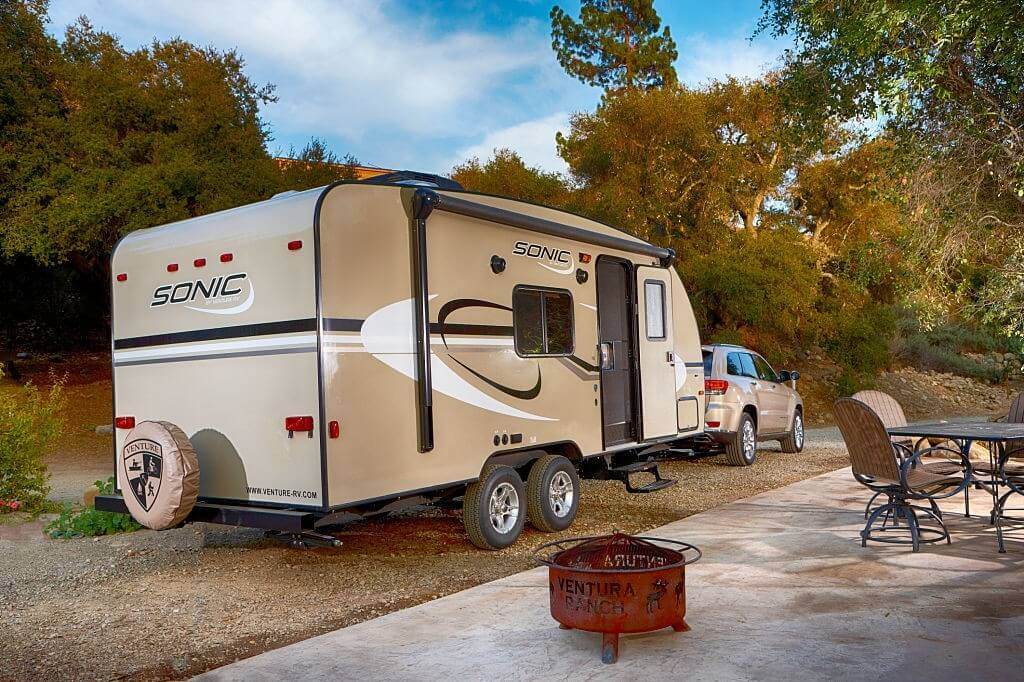
Travel trailers also known as conventional trailers can be towed by a bumper or frame hitch. It is common on the road or campground and is great for any type of camper for it offers lots of floor plans and styles.
Pop-Up Camper
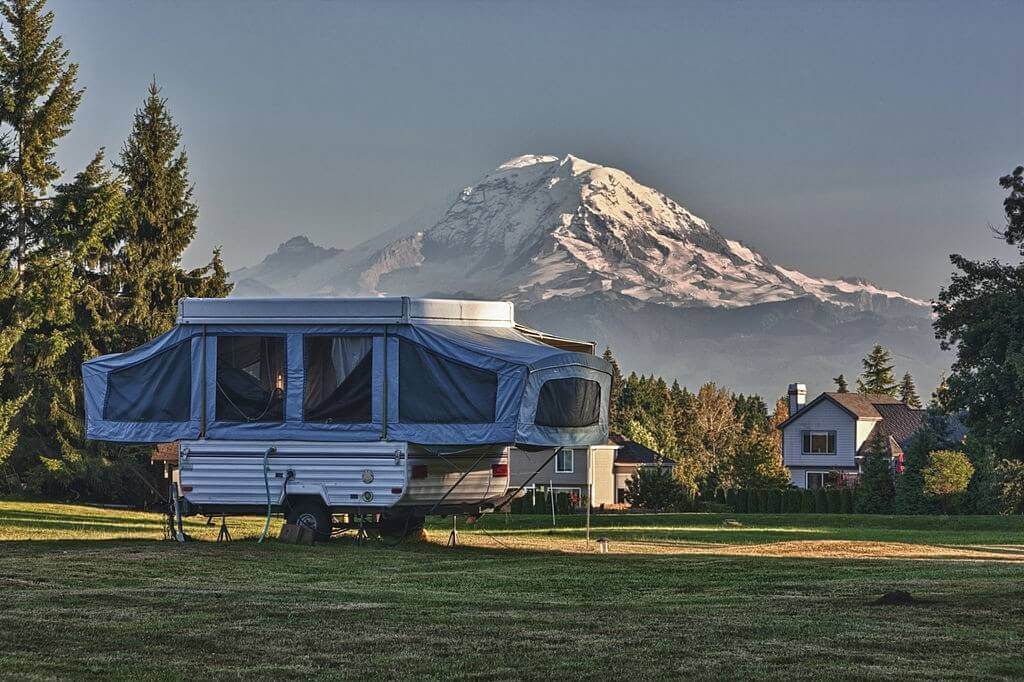
If you grew up camping, you probably have met pop-up campers. It is ideal for young families. It offers affordability and also comes with lightweight features. It is lightweight because even a family vehicle can tow it. It is equipped with a hard base with canvas sides that pop up so RVers can able to sleep.
Learning HOW TO BUY AN RV does not end on the different types. Read on and see many other tips to go through.
#2: Plan How To Use Your RV For
RVs are different and are used for different purposes. There are RVs used for frequenting national parks. Others are great for weekend trips. Whether you use the vehicle for recreational purposes or business matters, it is important to plan how you use it.
For Tougher Rides
Consider an RV with great interior facilities essential for your daily needs such as a full bathroom and kitchen amenities. The type of RV you buy should also be tough enough to survive when taking a trip every day, especially when passing through difficult road surfaces. A diesel motorhome is great for longer rides.
For Weekend Trips
If you don’t use your gig too often, something with a simple seating or cooking feature might be enough. However, if your weekend days have to go too far from home opt for an RV with improved ventilation. The RV should also have basic amenities for everyone’s comfort.
#3: Make A Checklist For Your Ideal RV Features
In making this list, make sure to consider the interior amenities. Also, look for other desirable features that suit your travel preferences. Here are some of the things to look for:
- Solar showers
- Cooking feature
- Full bathroom facilities
- Built-in oven or stove
- Full kitchen amenities
- Plenty of gadgets
If you would only want to make upgrades over time, you can live without such luxuries and opt for a cheaper option, something that can help you design your vehicle on your own.
#4: Think of What Climate You Generally Travel To
Most RVers like to travel during the summer months where the climate is warm and they can go camping wherever they want. However, there are also RV owners who embrace winter which makes them skip the heat from the city. Whether your motorhome is used for the hot or cold season or both consider the following tips:
Summer – Find a fully air-conditioned RV. A few extra fans might also help to prevent the cabin from becoming too stuffy. Improve window ventilation. You may also open the windows to smell the fresh air from outside.
Winter – Opt for a kind of RV that is equipped with dual-pane acrylic windows to prevent RV condensation. You may also cover the windows with a special window insulation film to prevent the cold air from coming in. The vehicle should also have a good heating system. HOW TO BUY AN RV is easy if you are aware of how to survive in different weather.
#5: Check To Whom You Will Be Sharing Your RV
Will you be traveling with the kids? Will there be elderly? Are you going out with larger groups or just be with family members?
For kids – you may go for an RV with a wider space. You may also want to add baby cribs or toys for the kids. Toy haulers also are known as sport-utility RVs are equipped with tons of gear and outdoor toys.
For the elderly – if there are elderly, a motorhome that offers many of the comforts of home might be great as they need much care, something like a home. Most RVers go for class A gas motorhomes for both kids and older one’s ease.
For larger groups – Class C motorhomes are great for people who travel with friends. It can provide an extra bed or storage space for larger users. Many class C types are designed the same with the Class A motorhomes which also provide complete services.
For family use – For a small family, couples, or solo travelers, an RV in Class B type might be perfect. It has seats that can be converted into beds in minutes. This type is a compact size but has cleverly designed interiors for all essentials.
#6: Should You Buy New Or Used?
Well, when it comes to buying new or used, there is always a good and bad side.
A brand new RV is great. It is in good condition for sure and comes with a service warranty and freebies. There would also be a user’s manual included for beginners. The only problem is that most brand new RVs are expensive and a new kind does not always mean fewer problems. In fact, you can hear from many RVers that their new gig had just as many issues as the used ones.
A lot of RV owners who buy brand new RV get tired of it and rarely using the gig and decide to sell it. Here, we won’t recommend always go for used RVs but to help you consider them for a cheaper option. Here are a few tips:
Know the real worth – used RVs must be of a lesser price than brand news depending on the length of use, add-ons made and features provided.
Do a close inspection – inspect the vehicle inside and out. Everything from the bathroom and kitchen fixtures to cabinets cannot be a headache. Here are the other things you need to look out for:
- Tires – Without tires, your RV cannot run. Blowouts can lead to catastrophic incidents. Don’t forget to check the tires including their age, appearance, and tread.
- Floor – Floor damages are common in RVs that are cleaned rarely. Small water can seep below the line of the floor making it hard to notice the underlying issues. Try to jump up to check if the floor is still stable.
- Exterior panels – Don’t forget to check for any exterior problems such as rust and corrosion.
- Mold – RVs are common for mold problems. Aside from giving an ugly ambiance, mold is associated with dangerous health risks. Give a push on the corners of the ceilings, floors, and cabinets and check for any water leaks. Mold is often smelly so you can easily recognize it.
Used RV’s are like used cars, you can use the VIN of the vehicle to see its history and data available. The vehicle identification number can able to report if the gig is also rebuilt, stolen, or been damaged. Finally, look out for scammers when buying a used vehicle. Don’t release any money if an item has not been carefully checked.
Conclusion
You had just read the six tips on HOW TO BUY AN RV yet each tip provides useful information to help your RV lifestyle perfect. RVing is amazing but giving no room for regret is not a piece of cake. This article can help you out to make a good purchase plan.
Have you enjoyed the list? Share it if you liked it!

